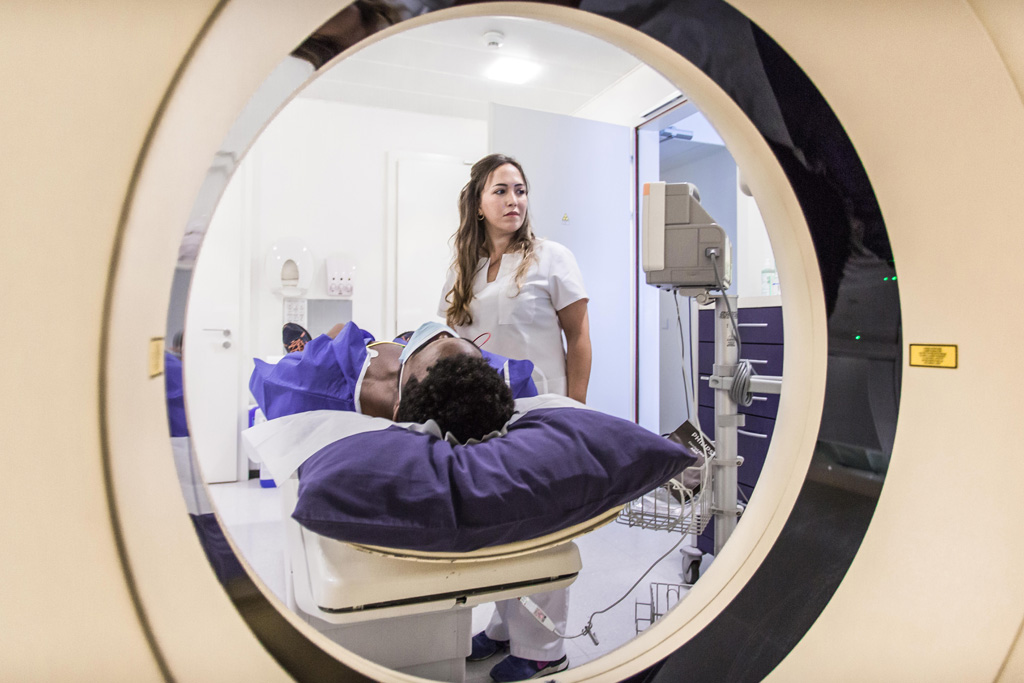A CT scan allows a very precise radiological examination of the different anatomical structures of the human body: bones, blood vessels, organs, tissues … In the scan, during a quick and painless examination, the body is scanned by a range of X-rays. The examined area is scanned in very fine sections, taken to the nearest millimeter, which are reconstructed by a computer in the form of two- or three-dimensional images. Our radiology practice in Geneva has a latest generation CT scanner that is extremely powerful and delivers low levels of radiation.

Correct preparation for the examination
- Brain, neck, thorax and abdomen: Do not eat 3 hours before the examination.
- Cardiac CT: according to protocol.
- Virtual colonoscopy CT: according to protocol.
- CT ENTEROGRAPHY: according to protocol.
- Other: no preparation.
- If it is necessary to inject a contrast medium, to help with diagnosis, please notify us of your history of allergies.
A questionnaire will be provided for you to complete upon your arrival.
Details
You will be lying on a table (most often on your back), which moves through an open ring. This is the centre of a source of X-rays and detectors that rotate around the patient, to measure the radiation passing through them at every moment.
The medical team does not remain in the room but communicates through a microphone. It is important that you remain as still as possible during this examination which can last for approximately 5 to 20 minutes for the longest exams.
In some cases, the intravenous injection of an iodine-based contrast medium will be necessary.
It is also possible that you may be asked, in order to help with the diagnosis, to drink a contrast medium or to accept the introduction of air or contrast into the colon.
Implications
The X-rays used are generally to be avoided by pregnant women. Depending on the pathology involved, certain indications are however justified.
It is therefore imperative to report if you are pregnant or could be pregnant.
The administration of the venous contrast, may cause some hot flushes or a strange taste in the mouth. The injected iodine may be the cause of allergies thus it is imperative for patients to have previously reported their history.
It is essential to inform the medical staff of any kidney failure or diabetes problems so that we can take all possible precautions.
Results
At the end of the examination, our doctor will be available for a comment that shall not be of diagnostic value. This will be evaluated by the doctor in charge of your records in our centre then transmitted to your referring doctor. You should also expect a slight wait so that you can leave with your images and a DVD of your examination (reconstruction and recording time).
Learn more about the other examinations available at the Medimage centre: radiography and radiology in Geneva, MRI in Geneva (Magnetic Resonance Imaging), cardiac imaging, mammogram in Geneva, ultrasound in Geneva, elastography, biopsy in Geneva, infiltrations in Geneva, PRP infiltrations, dental panoramic or mineralometry.
Take a look at our medical team and our radiologists.
